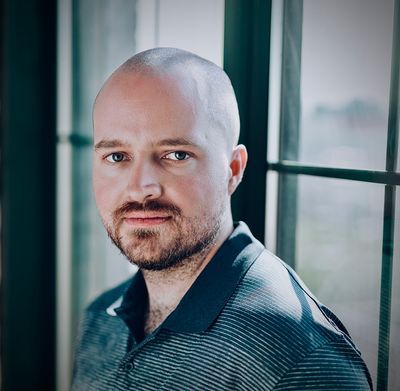"Spelunking" is one of my favorite words. Partly because it's just so damn fun to say. Seriously, say it out loud right now and try not to grin.
Anyhow, spelunking is the recreational exploration of caves. It's about navigating through an unknowably vast labyrinth of underground passageways, where you can only see as far as your headlamp illuminates. As with most things, it's best done in the company of friends.
The internet is a lot like an elaborate cave system. The vast majority of it, especially the social and communal aspects, take place out of sight and beneath the surface. These are the dark forests Yancey Strickler speaks of. Many of the most nourishing pockets of connection are only accessible if you're actively searching for them, or if you're invited in by a friend. Otherwise, they stay hidden, out of sight of the louder, more predatory aspects of the internet.
Digital Spelunking is my term for exploring the depths of our digital cave system in order to find the others. It's a process designed to help you uncover a ton of rad new people, communities, subcultures, and media that align with your interests. Spelunking is a great first step towards connecting with like-minded homies, and curating your own personal slice of the internet that brings you alive instead of deadening your spirit.
There are no right or wrong ways to go about this. Seriously, this isn't "market research" and you're not trying to validate anything. The goal is to find people you vibe with. You can approach it however feels right to you, but down below I've detailed the process I've been iterating and practicing myself for years, which is fairly methodical. Feel free to take what resonates, modify it, and do it your own way!
Step 1: Personal exploration
Before we enter the caves in search of the others, first it helps to understand who we are and what we value, or at least have some clues that point us in the right direction. That's what Personal Archaeology is all about—unearthing valuable clues about ourselves. We can then use those clues as a jumping off point to search for people like us in the digital world.
So before you go spelunking for the first time, I recommend doing a bit of targeted inquiry. I'd start with one of these audits—the identity audit, the desire audit, or the delight audit.
Step 2: Brainstorm keywords and phrases
In order to start spelunking, we first need to find the entrance to the caves. So this first step is about brainstorming keywords or phrases that excite you. You're looking for a handful of good entry points to start looking for resonant people, communities, and media.
For example, a few years ago, I wanted to break free from the traditional marketing ecosystem, and find people approaching it differently. So I brainstormed a handful of keywords that were directionally correct in terms of who/what I was looking for.
- Ethical marketing
- Generous marketing
- Playful marketing
- Slow marketing
- Gentle marketing
- Joyful marketing
- Marketing that feels good
I'll get to how I use these keywords in the next step. But for now, in order to generate your own, look over any of the audits you did. Perform a resonance review, and pick out the words, concepts, ideas, etc that excite you. Look for things you could see yourself connecting with other people over, or happily consuming media about. Make a list.
As you're putting together this list of keywords, try to come up with a few different framings and synonyms. Searching across the internet for "joyful marketing" might not bring anything good up, but "slow marketing" absolutely might (it does). Small differences in language or framing can be like the key that magically unlocks a delightful new chamber of the cave. So take a bit of time to come up with variations. It can pay off big time.
Step 3: A simple spelunking process
Ok, this is where the rubber meets the road. First, I'm going to give you the simple version of this process, and then a few things that make it more complex and precise. But let's start with the basic way to approach this work.
- Take your list of keywords and phrases, and choose one that feels exciting right now. Which feels most alive?
- Combine that keyword with one of the search modifiers in the list below. Again, which feels most exciting and alive to you?
- Head over to google (or the search engine of your choice) and plug that keyword + modifier combo in and start searching!
- When you find something cool, add it to your Curiosity Map (check out that page for more info and a Notion template).
- When you hit bedrock (you can't dig any further), start again with another keyword or modifier.
- Repeat until you've uncovered all of the internet rabbit holes that pertain to your keyword!
A big-ass list of potential search modifiers!
- Blog
- News
- Magazine
- Community
- Forum
- Meetup
- Amazon
- Chat
- Mailing List
- Newsletter
- Video
- Tutorials
- Film/Movie
- YouTube
- Facebook Group
- Creator
- TikTok
- Influencer
- Resources
- Help
- Advice
- Wiki
- Media
So for instance, if you started with my list of keywords above, you might choose "playful marketing" as your starting place. You could plug that phrase directly into google and see what comes up, or start by combining it with different keywords. So you could try "Playful marketing + Community" or "Playful marketing + Newsletter" and searching for those in Google.
As you work through the results, you'd make note of any that pique your interest or curiosity on your Curiosity Map, while ignoring anything that clearly doesn't vibe with you. Once you're no longer discovering relevant stuff on a particular search, you could change up the keyword to something else. So you might run the same process again for "Slow Marketing" along with any modifiers.
This simple version of the process is basically the 80/20 of digital spelunking. Google does a decent job of indexing and categorizing different pieces of the internet, and you'll likely find most of the big players in any given space through this method.
Step 3.5: Advanced spelunking techniques (lol)
Ok, so here are a few more considerations that can help you digitally spelunk like the pros!
A paid tool I highly recommend
The thing about digital spelunking is that it takes a lot of manual labor and guesswork. It can be time consuming and tedious. If you're looking for a tool that does an astoundingly good job of automating a lot of that work, I heartily recommend SparkToro. It's geared for more traditional marketers, but it can absolutely still help you find the others, and it can save you boatloads of time in your search process. Also, my friend Amanda works there and is one of the best marketers I know. Def worth following her on twitter.
First up, most major platforms are their own search engine, and you'll find more relevant stuff by searching natively there than you would by searching on google. For instance, if you search "Joyful marketing" directly on YouTube, you're way more likely to discover smaller, lesser known creators than if you'd punched that phrase into a google search. This is the case with pretty much all centralized platforms. So consider searching Facebook, Twitter, Instagram, Reddit, YouTube, Amazon, TikTok, etc natively.
Speaking of native searches, some platforms use hashtags as a primary organizing function for content discovery. As you're searching these types of platforms with your keywords, be on the lookout for recurring hashtags as well. It's likely that clicking through and searching these hashtags will help you discover far more than you otherwise would.
Lastly, most search engines have advanced search operators that allow you to get extremely precise about what you're looking for, and filter out noise. This is true of google, and it's true of most social media platforms. So if you're doing any kind of native searching, and you find yourself sifting through tons of irrelevant garbage, consider looking up the advanced search functions on your platform of choice.
Step 4: Spelunk!!
If you couldn't tell, digital spelunking is a fairly involved process. It takes time—maybe even weeks—to work your way through various keyword combinations, and you'll have to sift through a lot of irrelevant nonsense to find the gems.
But there's a good deal of joy and serendipity in spelunking too. It can break us out of habitual patterns of how we use the internet, and make the digital world feel fun and alive again. It can remind us that the internet isn't just toxicity and optimized mediocrity and scams. There are also real humans doing cool shit all over the place, and with a lil work, they're pretty easy to find.
Lastly, I'd be remiss if I didn't mention that this type of work has meaningfully changed my life, and the lives of a lot of folks who've done it. When I last went through this process back in 2020, I was in a major funk, having realized that I disliked my first business, along with the corners of the internet I was inhabiting. My own spelunking led me into some delightful new corners of the internet I never would have discovered otherwise. Immersing myself in those places changed the direction of my creative work and business, and connected me to so many new people, many of whom are now lifelong friends.
So good luck to you, and godspeed.



